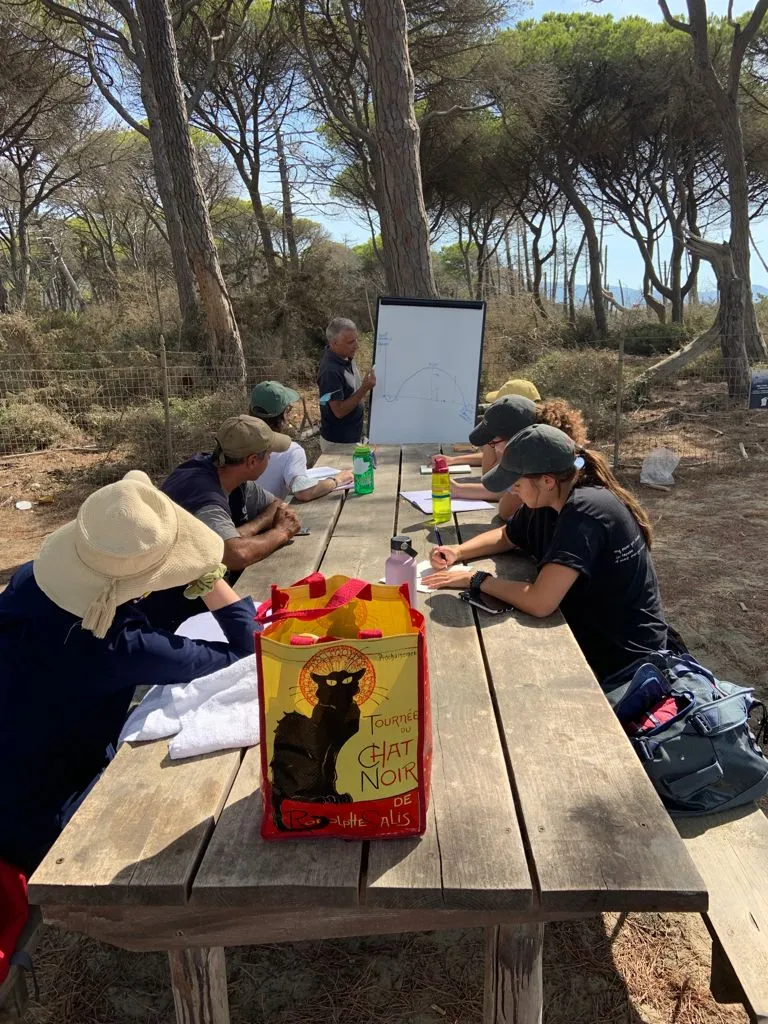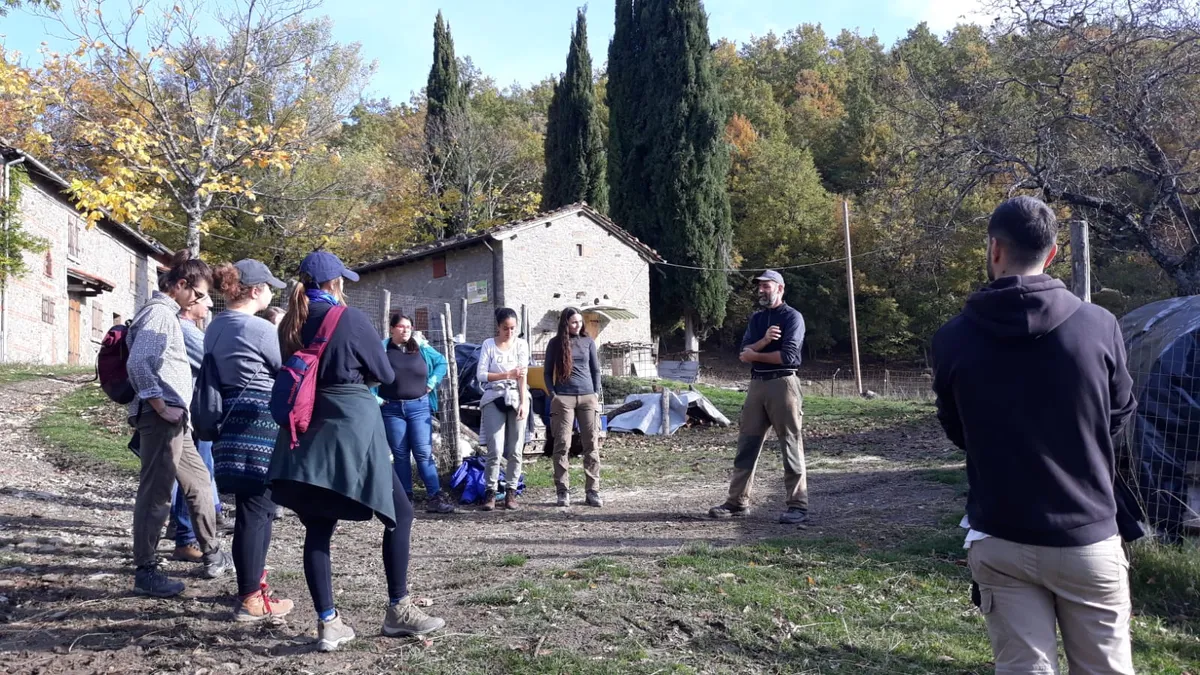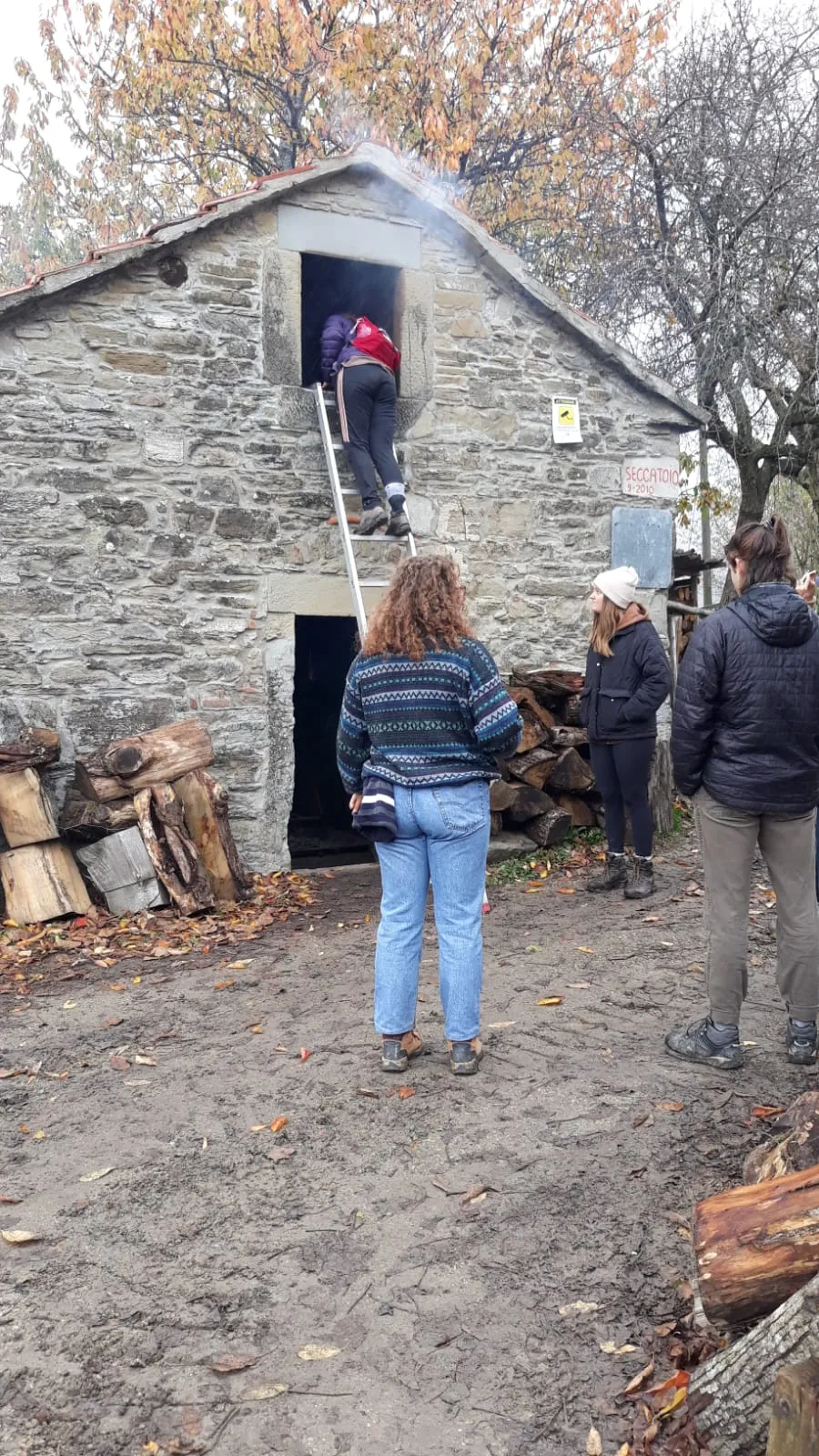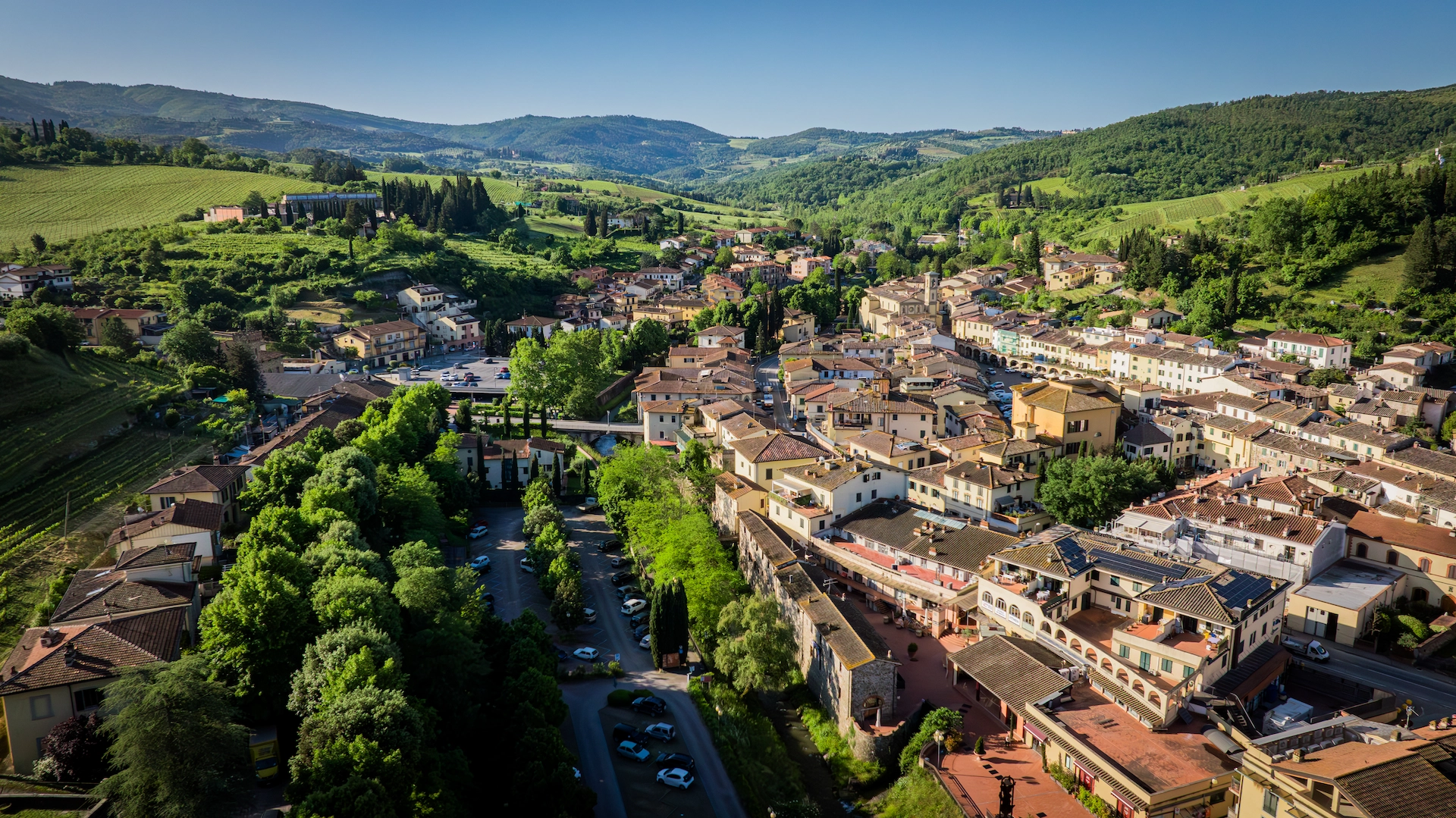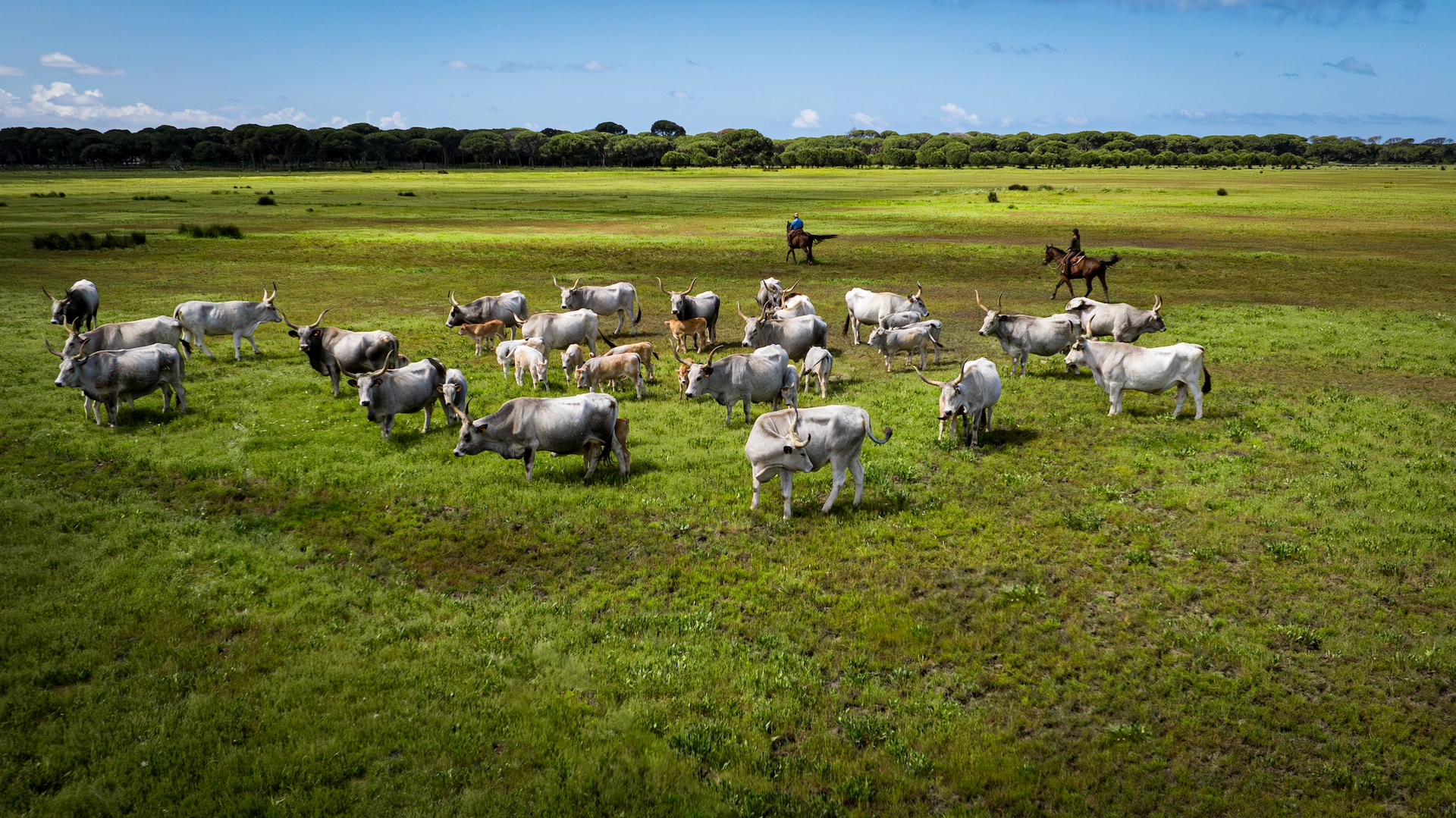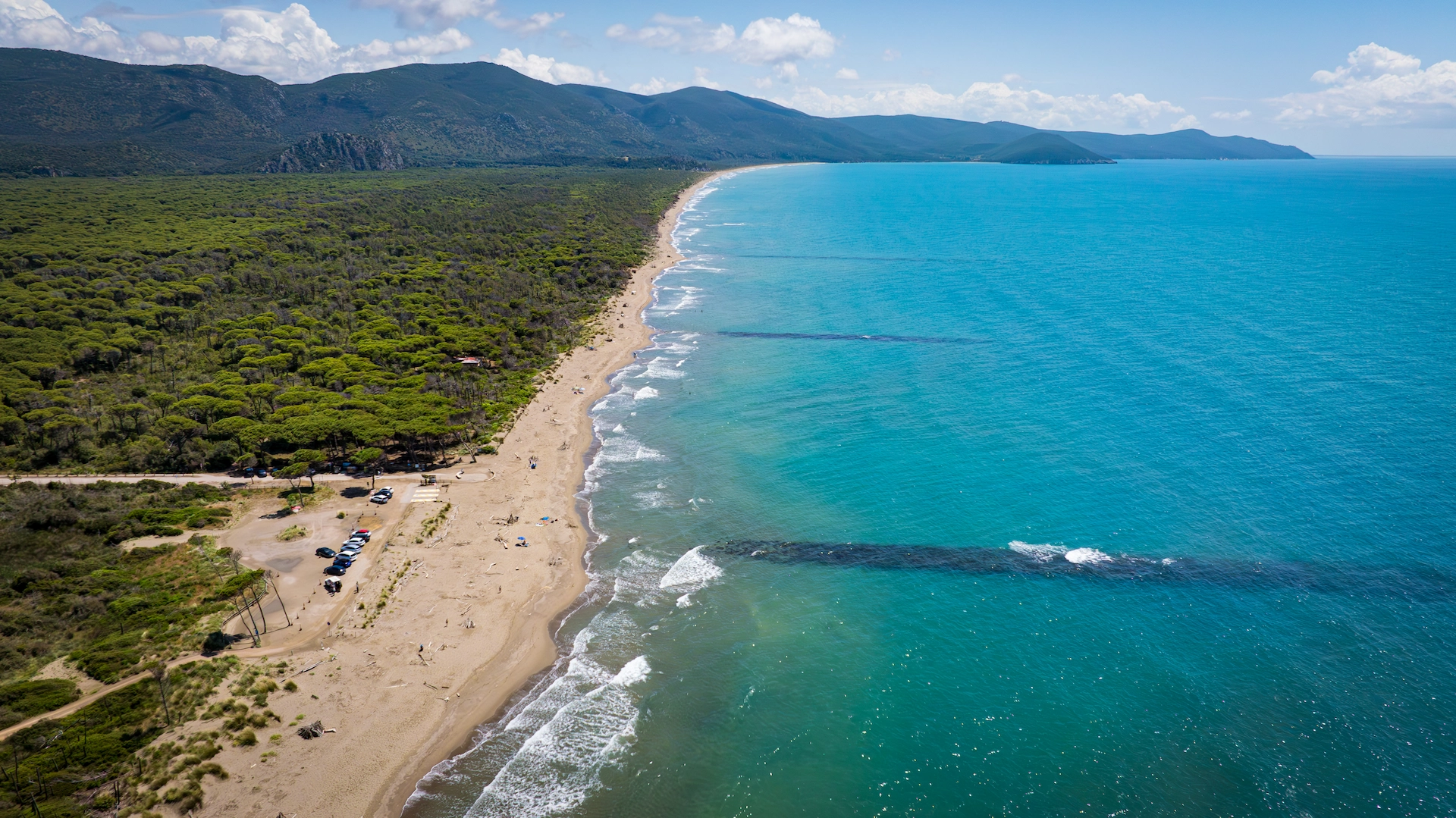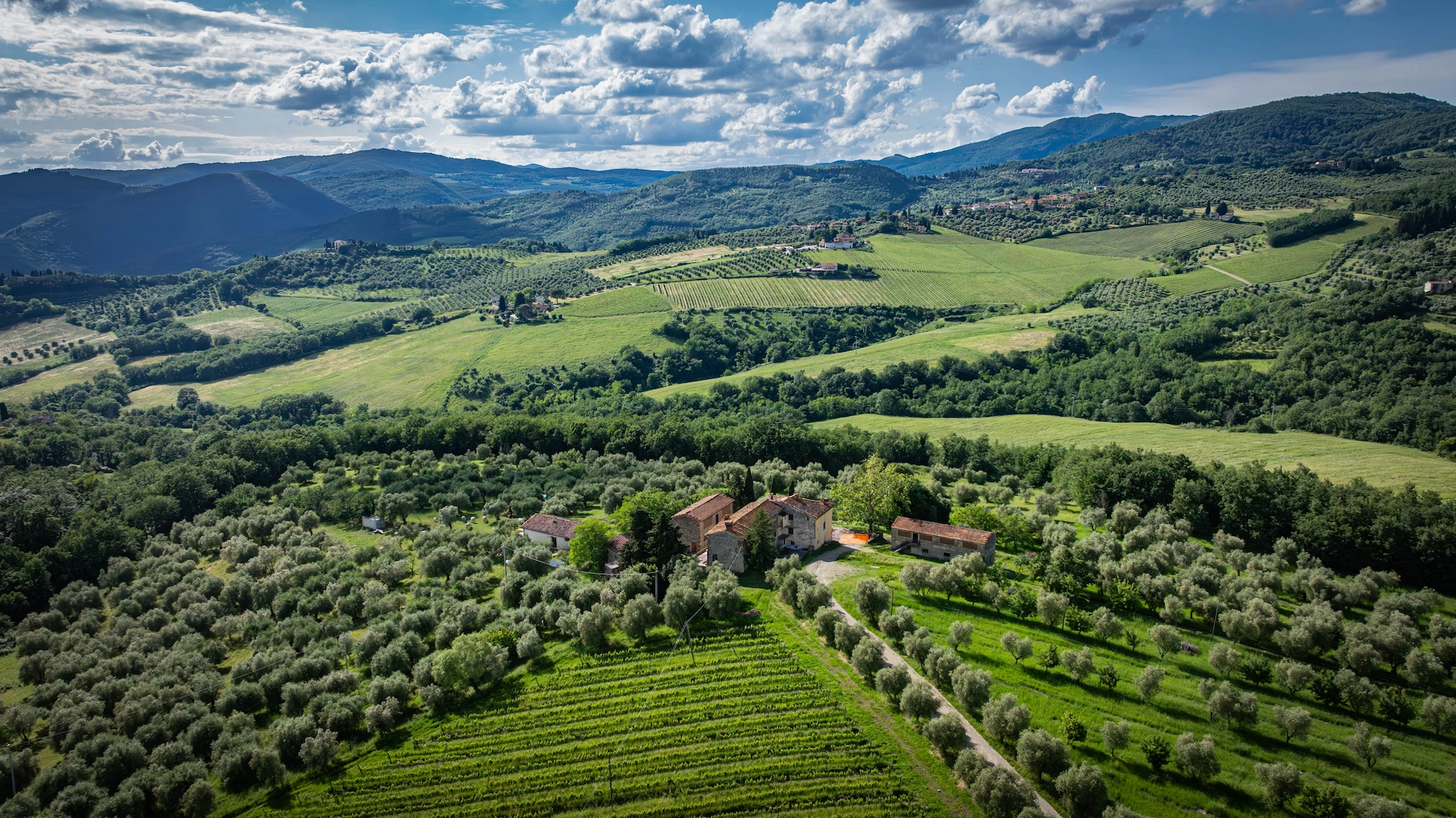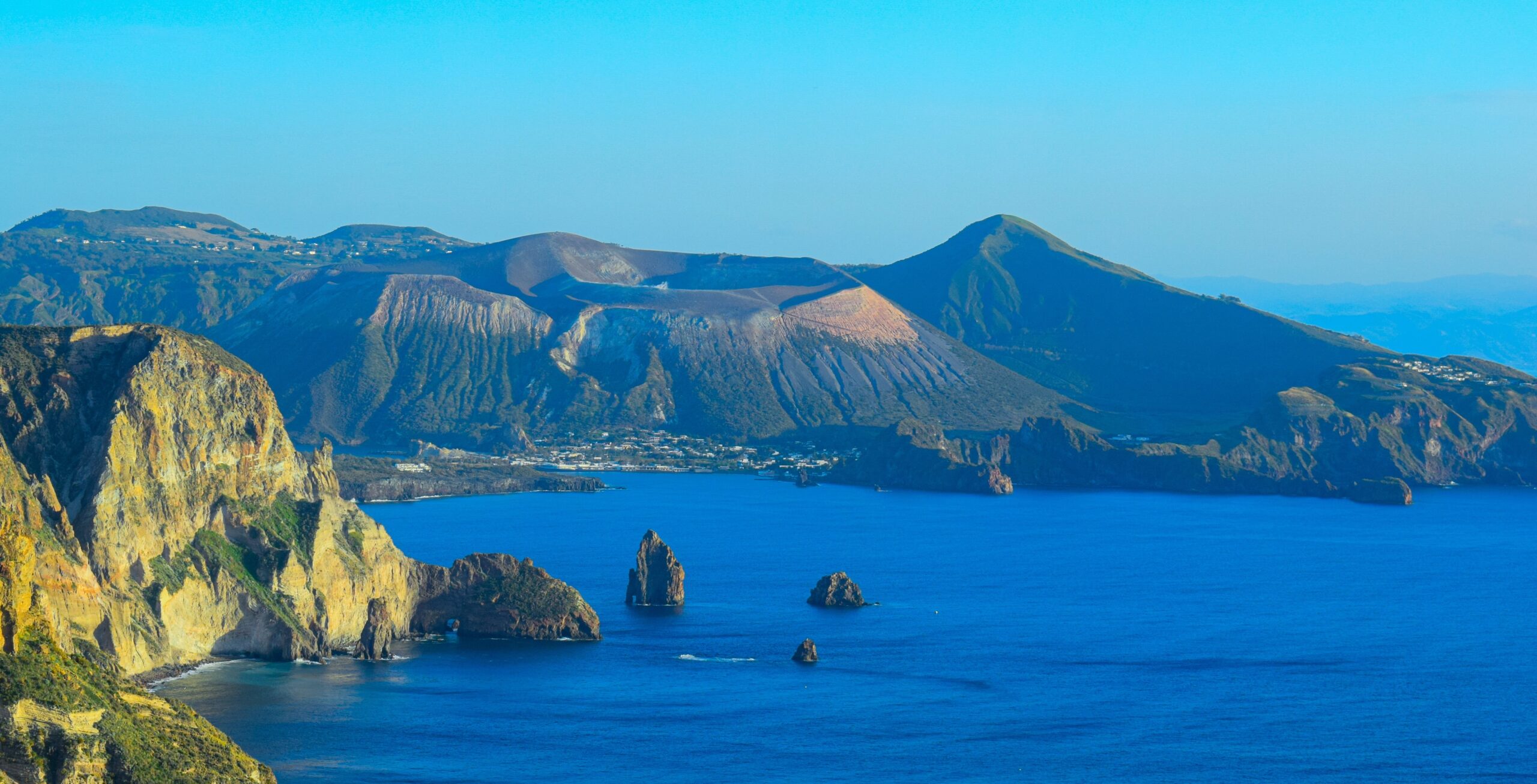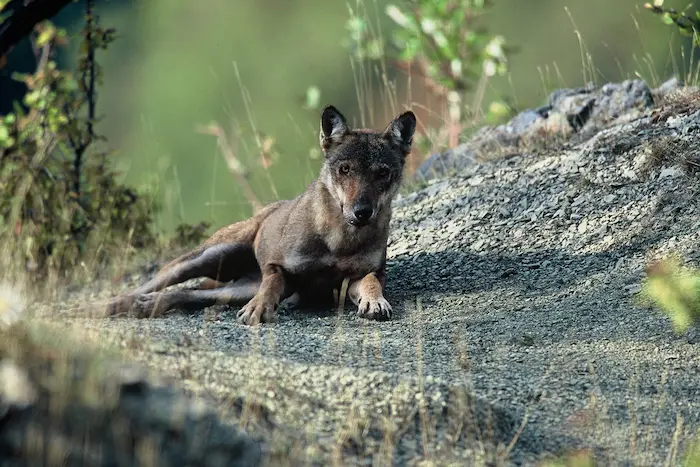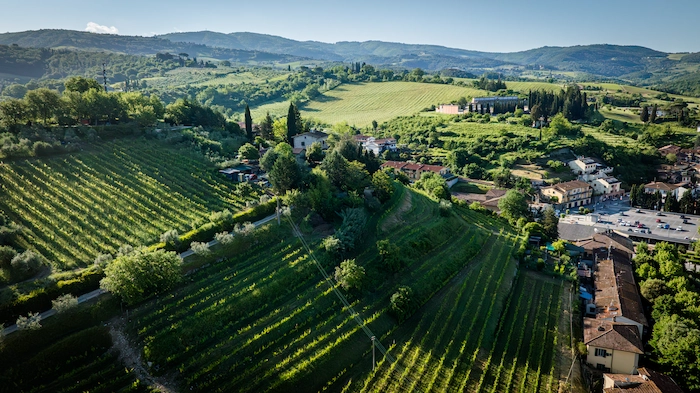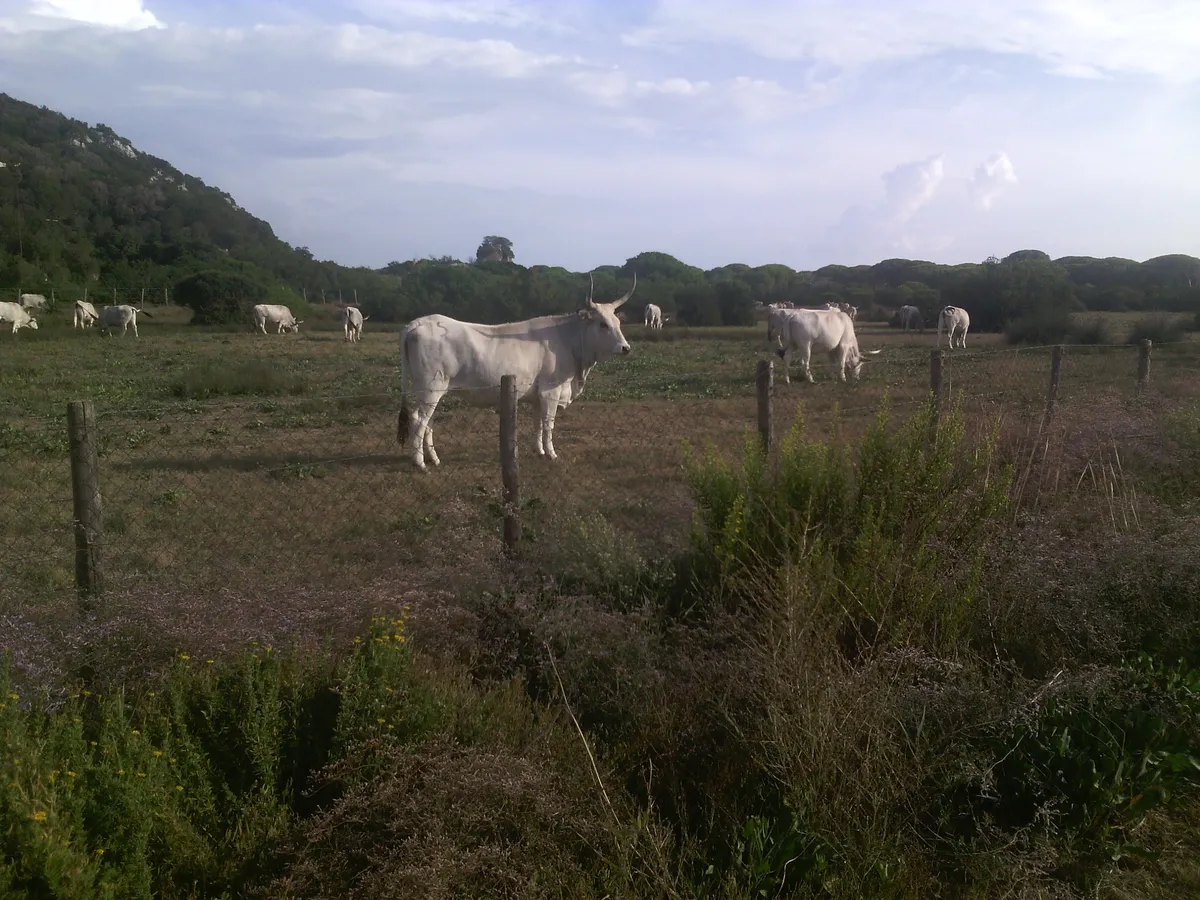
Program Costs
- Tuition
- Room & Board
- Total
Application Deadlines
Resources
Sustaining Traditions: Food, Farming, and Climate
Stone terraces, chestnut groves, and coastal lagoons form a living tapestry where food, culture, and ecology are inseparable. Students kneel in vineyards to survey pollinators, track wolves along ridgelines, and study soil and water management in citrus groves, while working with cooperatives adapting to climate shifts and global markets. Students collaborate with local cooperatives during harvest season, gaining insight into sustainable food systems and agricultural practices. Yet across rural Italy, fields are abandoned even as predators reclaim old ranges and traditions strain to survive. The tension is vivid, but so too are models of renewal.
- Track biodiversity in Orbetello’s lagoon with artisanal fishers responding to rising salinity, policy shifts, and ecological decline.
- Explore food’s biocultural roots during a weeklong Sicilian excursion, where Greek and Arab agricultural legacies echo through landscape, language, and cuisine.
- Analyze agroecosystem resilience in Chianti and Maremma by assessing soil, water, and landscape indicators across working farms.
- Share meals and language in family kitchens, where recipes and conversations open cultural and linguistic doors.
- Conduct Directed Research: frame a stakeholder-driven question, collect and analyze field data with faculty guidance, and present actionable findings to local partners.
Academics
This rigorous academic program follows a five-day/week schedule. Each program combines theory learned during classroom sessions with field-based applications. The interdisciplinary curriculum is designed to help students actively discover and understand through classroom work, intensive field trips, and experiential learning, the complexities of balancing conservation with social and economic issues.
Major academic themes include:
- Environmental, sociocultural, and economic dimensions of food systems
- The intersections of food production, biodiversity conservation, environmental policy, and climate change
- Agroecological practices and sustainable management of food systems
- Food systems policy objectives and implementation
Courses
Students will gain knowledge and make use of practical research field tools and instruments such as: research design and implementation, quantitative/qualitative data collection and analysis, questionnaire development, stakeholder interviews, basic statistical analysis, monetary valuation techniques, multicriteria analysis, biodiversity assessments, population monitoring, animal behavior observation, GIS and mapping, biodiversity survey techniques, scientific writing, and communication.
Food Systems Resource Management
This course addresses the management of environmental, sociocultural and economic resources in food systems. The totality of resources needed for the primary production of food, as well as for other food system activities (e.g. processing, distribution) is examined, considering the range of actors engaged in food system activities and the outcomes with respect to food security, social justice, livelihoods, and human health. Students will learn how to use GIS (Geographical Information Systems) software in order to evaluate the capacity of the planet to produce food in aa sustainable fashion. Resource efficiency improvements to enhance food security are analyzed and discussed through a holistic and integrated approach, looking at resources such as soil, water, agrobiodiversity, knowledge, labor and landscape as a whole, integrated with the ecological platform which is our planet. In a typical experiential learning process, students will learn about the practices and structures that affect the health and wealth of those in agriculture and food systems.
During field trips, students will share innovative practices that are fostering the transition towards a sustainable agriculture. The study of ecological functions in farming, and the marriage of agriculture and ecology will bring us to the concept of “Agroecology”. More specifically, agroecology is defined as the application of ecological concepts and principles to the design and management of sustainable agroecosystems.
Many food movements embrace today the concept of agroecology as a pillar of food sovereignty, which focuses on local autonomy, access to knowledge, local markets, and community action for access and control of land, water, agrobiodiversity, etc. This course will be interdisciplinary, integrating different disciplines such as economics, geography, ecology, sociology, and the history of agricultural systems.
Language and Culture of Italy
Language and culture are critical elements in the understanding of any system of food production and distribution. This course provides students the opportunity to learn and practice essential elements of Italian, and the important cultural values, norms, and behaviors that shape attitudes toward the role of food as a basic civil right, and as an essential expression of life and culture in Italy.
Students will learn basic communication and some basic grammar, but will in large part be learning based on their goals—with specific vocabulary and interactions designed to allow them to interact in specific fields.
For this reason, students will participate in activities involving young Italians and their families. The idea is to be part of a program called “Cucina for English” where students can help Italian students with homework and conversation in English in change of family dinner. During the visit to the Italian families participating to the program, students can practice their Italian language and learn cooking skills. It will be enjoyable and a great opportunity to get closer to the Italian family traditions.
Systems Thinking for the Future of Agriculture
The necessity and urgency of halting and reversing the loss of biodiversity has been repeatedly called for by international organizations such as the UN, FAO, IPBES, EU, national governments and NGOs. More specifically, official strategies and reports such as the UN’s Millennium Ecosystem Assessment (2005), the UN’ s Agenda 2030 (2015), the IPBES Global Assessment Report on Biodiversity and Ecosystem Services (2019), the FAO’s Strategy on Mainstreaming Biodiversity across Agricultural Sectors (2020), the EU’s Biodiversity Strategy (2020), and the UN’s Kunming-Montreal Global Biodiversity Framework (2022), are defining goals, targets and actions in order to reverse the loss of biodiversity.
However, when it comes to implementing these strategies and action plans on the ground, there is the need to understand what the problems and opportunities of nature restoration at the local level are. This is particularly true for food systems in densely populated Europe, where almost no pristine natural area exists below 2000 meters of altitude. Instead of addressing the lessening/mitigating of food systems’ impacts on the environment to halt the loss of biodiversity, this program is adopting a change of perspective by focusing on the understanding, analysis, and assessment of making “nature’s return” sustainable for food systems. By looking at what is happening in Tuscany, students will explore the ecological, economic, and sociocultural complexities of sustainably managing natural restoration in ecosystems historically used by food systems
This interdisciplinary course explores the complex dynamics of how traditional agriculture can teach us to rethink the future of food production and agri-environmental policies. The historical background of Tuscany, with its hilly landscape, and a millennial practice of farming, from the Apennine Mountain range, Chianti hilly landscape and Maremma flat coastal areas, the students will learn how to read the landscape with a historical perspective.
The connection between traditional and contemporary agriculture and its policies will be defined using a systems thinking approach to learning, research and group work. The future of a different vision of food production is based on the application of systems thinking.
Syllabus coming soon!
Food Systems Ecology
It is estimated that most of the global terrestrial biodiversity loss is related to food production. Food systems account for around 25% of the global greenhouse gas emissions and an estimated 33% of soils are moderately to highly degraded due to erosion, nutrient depletion, acidification, salinization, compaction, and chemical pollution.
This course focuses on the ecology of food systems and on the impact of food production on biodiversity and natural resources and their management, as well as efforts to mitigate its impact. This framework provides a comprehensive approach to examining complex ecological relationships between agricultural practices and agroecosystem ecological state, drawing on the disciplines of biology, ecology, and climate.
The course provides theoretical and practical knowledge and skills needed to undertake field research on biodiversity conservation in agroecosystems. By working at the ecosystem and community level, students will learn research design, monitoring techniques, data gathering, analysis, interpretation, and communication of results.
Students will have the opportunity to visit different farming typologies as well as explore the surrounding natural habitats, experiencing the close interaction between the different habitats that characterize these ecosystems, conducting direct experiences of field research. The practical lessons will take place in three different areas of Tuscany. In the central Tuscan town of Chianti, students investigate the cultivation of vine and olive trees mixed with woodland areas. In Mugello, a few kilometers north of Florence, students examine pasture and agroforestry systems, such as chestnut groves, a typical cultivation of the Tuscan Apennine mountains. In Maremma, students explore a diverse region extending from coast to foothills interspersed with reclaimed wetlands and coastal fossil islands with Mediterranean macchia and holm oak woods.
Directed Research – Italy
Students will select a research topic related to one of the three core courses in the program and conduct a research project under the direction of the appropriate program faculty. The directed research prepares students to identify hidden assumptions in scientific approaches and separate fact from interpretation, correlation from causation, and advocacy from objectivity. Students will learn specific tools, including experimental design; geographical information systems (GIS); field techniques; basic descriptive statistics; as well as qualitative and quantitative analysis.
The directed research will allow students to tailor the program to individual learning, interests, and career objectives. Students can pursue a research question about a particular issue relevant to the program using academic resources accessible through their own campuses’ online library systems, as well as other websites and databases, data gathered during field research and by interviewing local stakeholders in Greve, Chianti, Florence and Tuscany. Guidelines on how to integrate what was learned in class into the field research project will be presented and discussed in class. Students will write a final report on their research and present the results in class. Together with the final written paper, presentation to the class and local communities serves as a capstone of the research experience, and a way of integrating it into the group’s collective experience. Emphasis is placed on succinct scientific writing, graphic and tabular presentation of results, and effective communication of the results of their Food Systems research project.
Core Skills
Students will gain knowledge and make use of practical research field tools and instruments such as: research design and implementation, quantitative/qualitative data collection and analysis, questionnaire development, stakeholder interviews, basic statistical analysis, monetary valuation techniques, multicriteria analysis, biodiversity assessments, population monitoring, animal behavior observation, GIS and mapping, biodiversity survey techniques, scientific writing, and communication.
Field Sites
The practical lessons will take place in three different areas of Tuscany. The first, in Chianti, located in central Tuscany, is a hilly system mainly suited to the cultivation of vine and olive trees mixed with woodland; the second, in Mugello, an agricultural and forested area a few km north of Florence, gateway to the Apennines, a valley surrounded by hills and mountains, famous for its pastures, agroforestry crops and its chestnut groves, a typical cultivation of the Tuscan Apennines and of the adjacent Casentino, characterized by large forests; the third, in Maremma, extends from the coast through large reclaimed wetlands used for agriculture interspersed with lagoons, as well as several coastal fossil islands with Mediterranean macchia and holm oak woods.
Other Italy Programs
Sustaining Traditions: Food, Farming, and Climate
More Information
Program Costs
- Tuition
- Room & Board
- Total
Pastures and Predators: Rewilding Central Italy
More Information
Program Costs
- Tuition
- Room & Board
- Total





